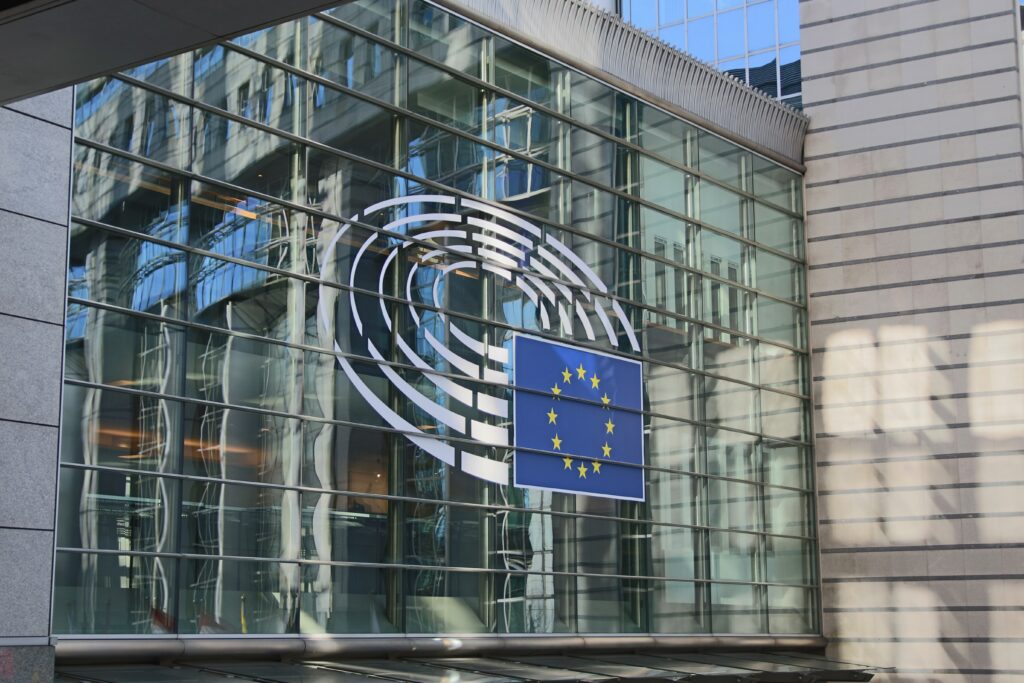
Dear Fashion: Let’s Step Up and Get Aligned
In a recent opinion editorial with WWD, CEO Colin Browne argues fashion needs to take more serious and coordinated action on sustainability. Read the highlights here!
The SAC’s senior director, policy and public affairs, Elisabeth Reitzenstein weighs in on the EU’s Corporate Sustainability Due Diligence Directive.


A Gain for Corporate Good
Last week, the European Parliament and the Council of the European Union chose to prioritize social and environmental good by striking a deal on the Corporate Sustainability Due Diligence Directive (CSDDD).
The CSDDD marks a huge leap toward transformative change, setting strong due diligence obligations for large companies in or who sell in the European Union. It will hold large companies accountable regarding actual and potential adverse impacts on human rights and the environment, “with respect to their own operations, those of their subsidiaries, and those carried out by their business partners,” per the news release.
“The SAC has been following regulation closely, so that our members can be prepared and proactive. We believe regulation is essential to drive meaningful change and the agreement reached on CSDDD is a major step forward,” said Elisabeth Reitzenstein, senior director, policy and public affairs.
This EU Directive builds in joint liability to ensure wider supply chain accountability. Importantly, it covers upstream and partial downstream activities, such as distribution or recycling. To note, the financial services sector is excluded from the initial agreement but could see “possible future inclusion.” Currently, the CSDDD applies to companies with over 500 employees and a net worldwide turnover of over €150 million. For non-EU companies, it will apply if they have over €150 million net turnover generated in the EU, three years after it goes into effect. The Commission will publish a list of non-EU companies affected by the Directive. It will not apply to micro companies and SMEs.
In essence, companies must include a transition plan for climate change mitigation and remedy or resolve adverse impacts on the people and planet. Penalties for non-compliance entail fines of five percent of a company’s net turnover. The Directive also makes a stand for “meaningful engagement,” as in dialogue and consultation with affected stakeholders as part of the due diligence process. The regulators also look to reward companies doing good, saying their compliance could open them up for public contracts.
Amid ongoing policy developments, the SAC initiated analyses of the Higg Index tools and their alignment with EU and national legislation, with a specific focus on corporate sustainability due diligence and reporting. Regular updates to the Higg Index tools proactively address the evolving demands of transparency and disclosure mandated by legislation, ensuring that SAC members are well-equipped with the latest resources to meet regulatory requirements.
“The Sustainable Apparel Coalition including our Policy and Public Affairs team is consistently – and meaningfully – involved in addressing the key issues which are critical for advancing sustainability in the textiles and apparel sector,” said Reitzenstein. “Our strong policy focus is shown in our recent collaborative reports and partnerships. We work closely with the Social & Labour Convergence Program (SLCP), the Global Fashion Agenda (GFA) and the Federation of European Sporting Goods (FESI). Additionally, we co-founded the Policy Hub to propose and support ambitious sustainability policies for the textiles industry, particularly in the European Union. However, we not only ensure proactive engagement in policy but also prioritize educating our members on the implications of upcoming measures and legislation, emphasizing how the SAC and the Higg Index tools support members in their compliance journeys.”
In collaboration with partners and stakeholders, the SAC actively engages in pioneering projects, including the development and support of an OECD-aligned Human Rights and Environmental Due Diligence (HREDD) framework. Collaborating with Worldly and Fair Wear, the SAC is working to deliver resources for effective human rights due diligence.
Reitzenstein said the team’s upcoming initiatives include targeted deep-dive analyses for SAC members, providing exclusive insights into legislation versus tools. This includes the recently published Higg Index Tools Analysis and Compliance Initiatives Summary Report with the support of consultant partners. This report maps out the evolving policy landscape including the CSDDD, the European Corporate Sustainability Reporting Directive (CSRD) and more.
“Through these efforts, we show our commitment to helping our members navigate the evolving regulatory landscape in real time,” she added. “We are also developing information materials and organizing webinars to communicate results, fostering knowledge exchange within our community and, to some extent, the wider public.”
Collectively Advancing
“Incentives are the driving force behind transformative change, and the CSDDD exemplifies this commitment. By mandating assessments of environmental and human rights impacts, the CSDDD plays a pivotal role by motivating proactive engagement beyond compliance, promoting transparency, fostering innovation, enhancing competitiveness, and supporting collective efforts toward global sustainability goals.” –Elisabeth Reitzenstein, Senior Director, Policy and Public Affairs

Colin Browne, CEO, argues fashion needs to take more serious and coordinated action on sustainability.

Andrew Martin, EVP at Cascale, traces his visit to Hong Kong-based manufacturer Epic Group’s CIPL facility in Bangladesh showcasing sustainable innovation and a responsible future ahead.

At the end of June, Cascale published its 2023 Annual Report, showcasing many milestones, achievements, and a renewed strategic direction over the past year.